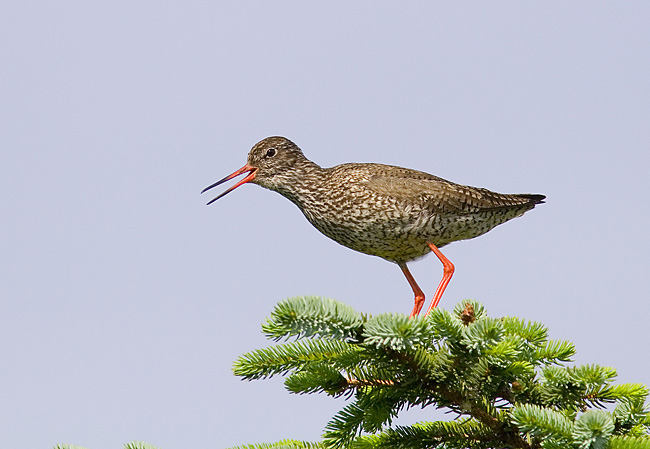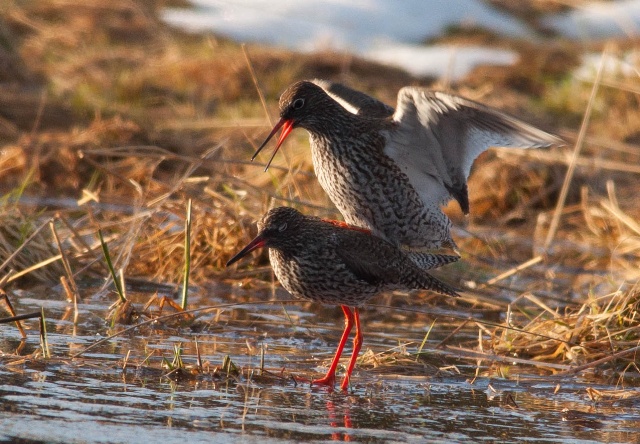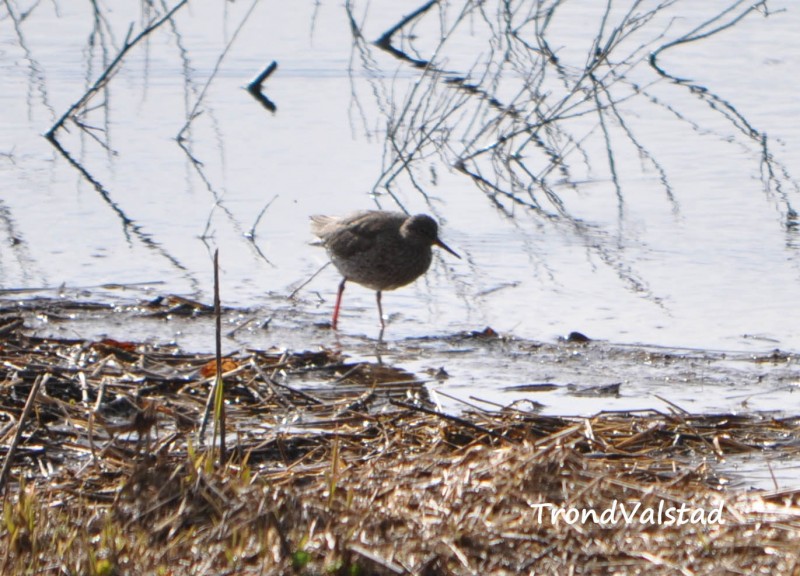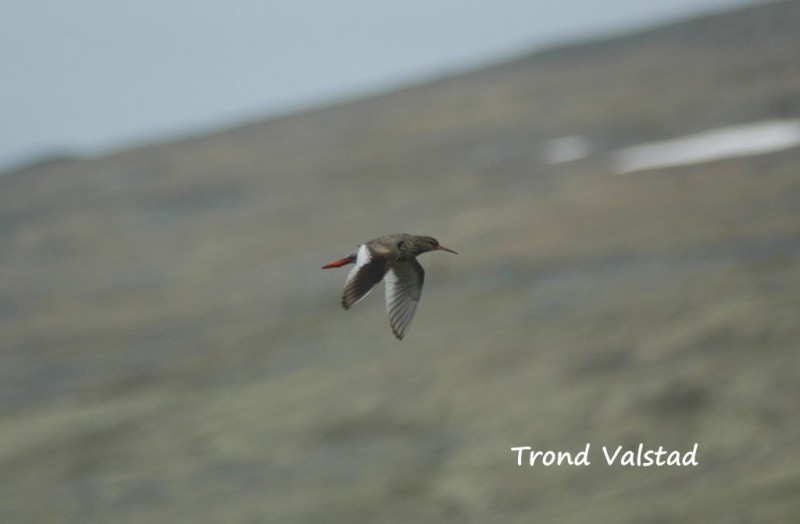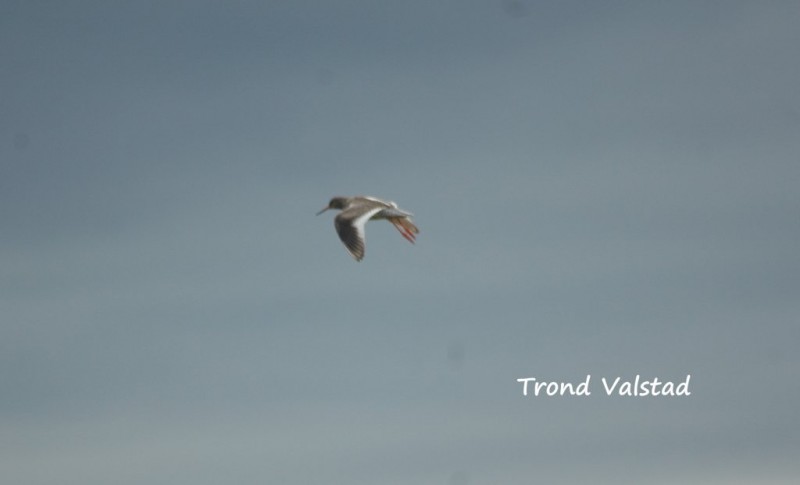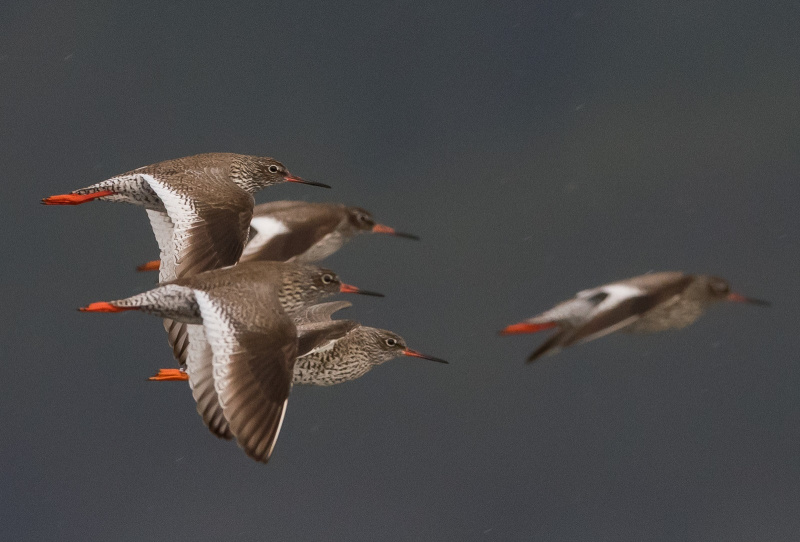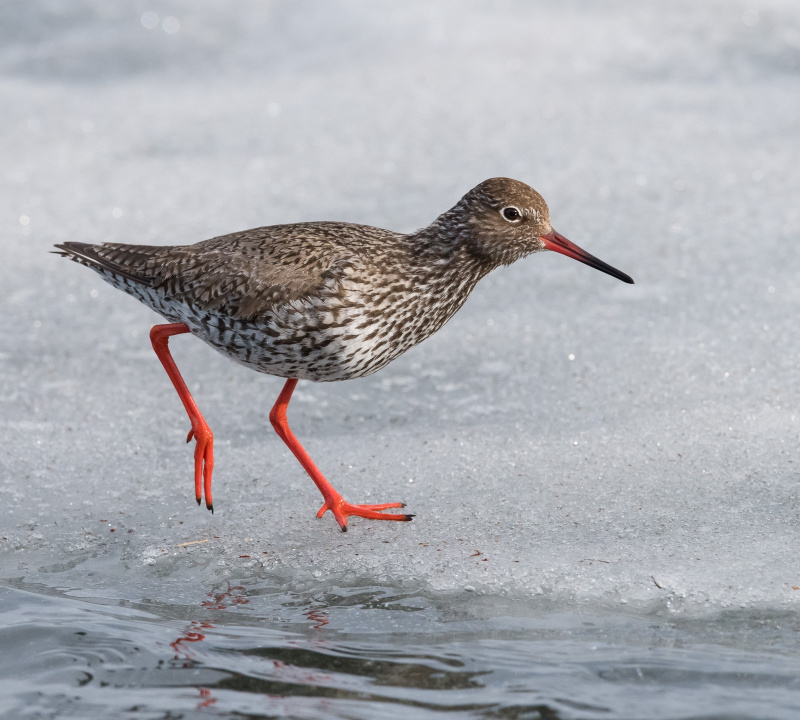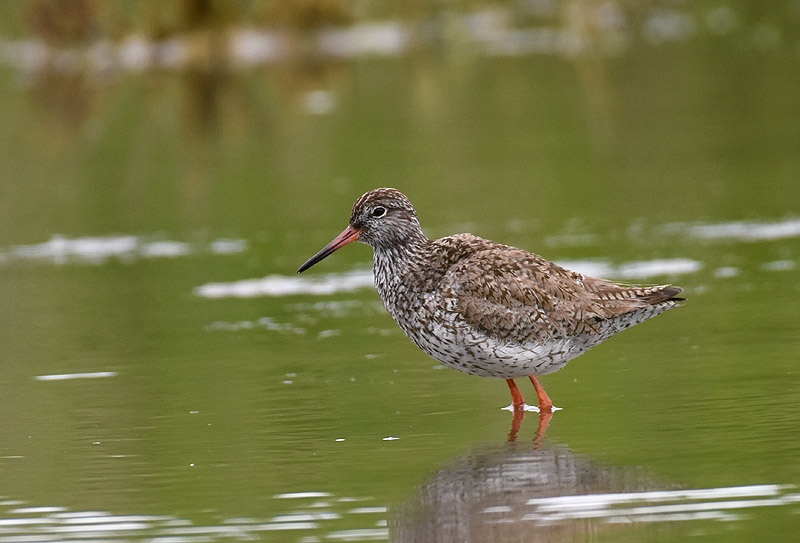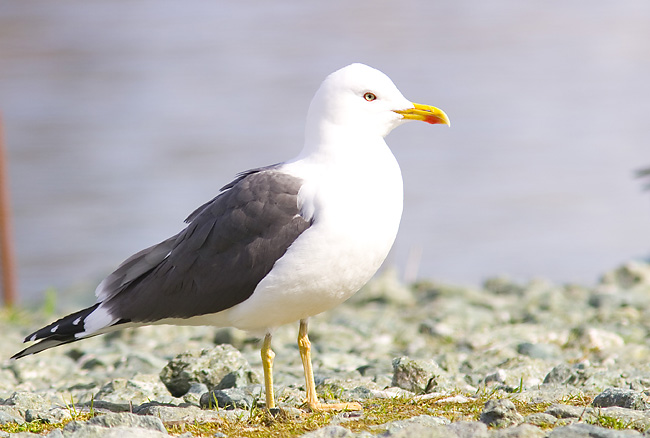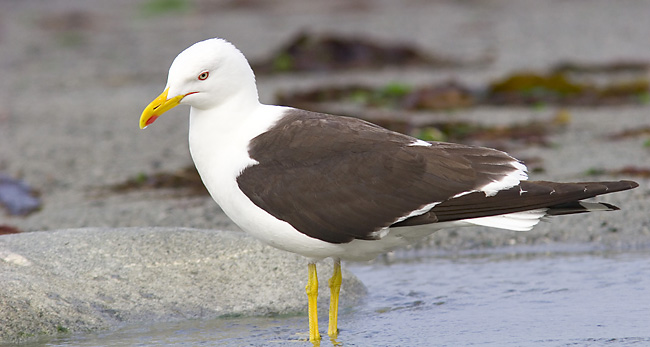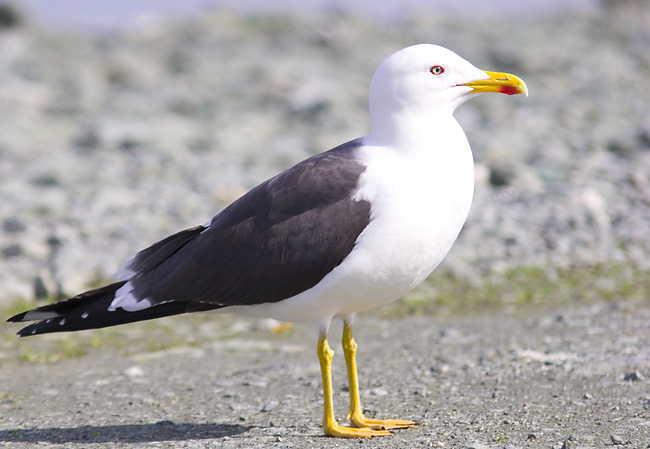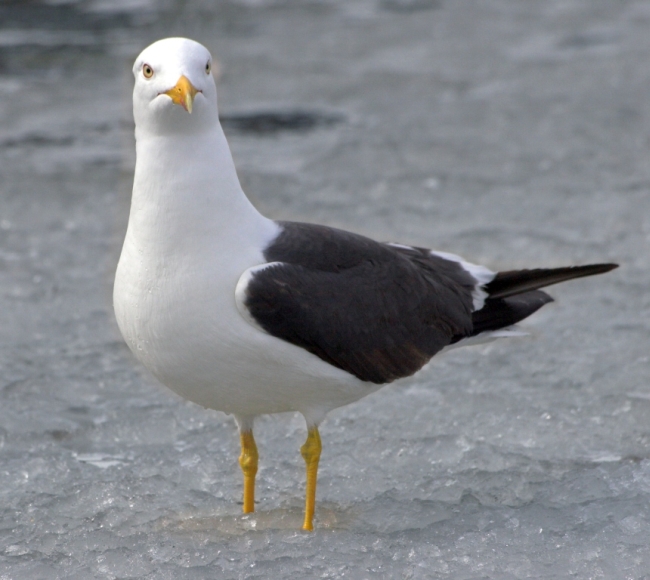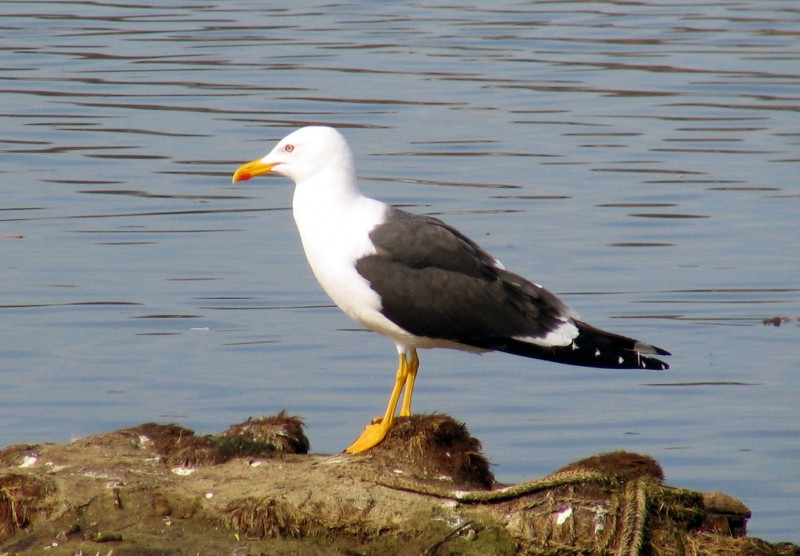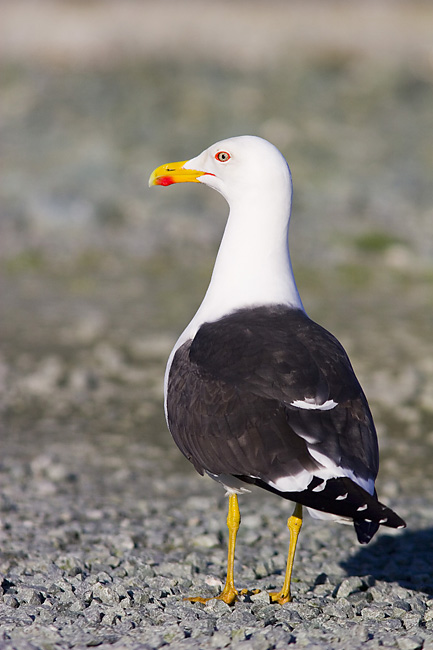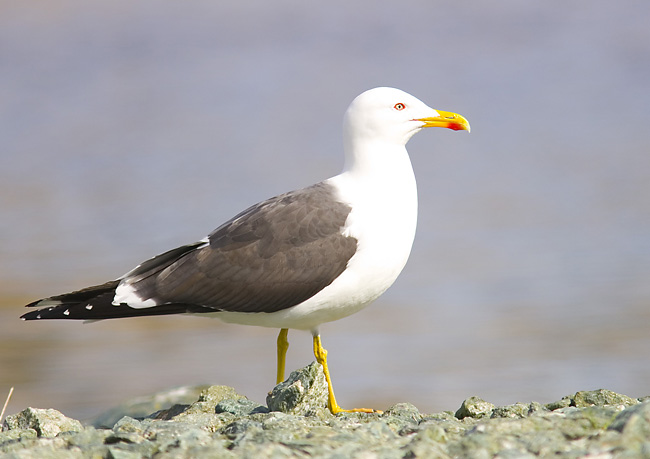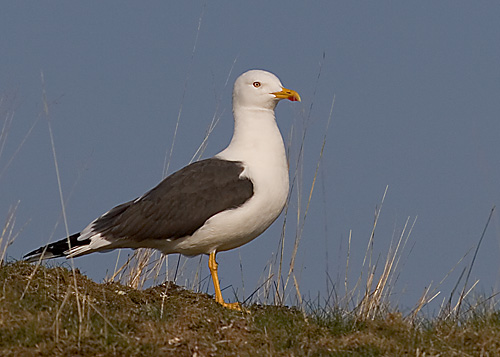Redshank (Tringa totanus)
Lesser Black-backed Gull (Larus fuscus)
Adults differ from most other waders by bright red legs. Large white rectangular patches on secondaries conspicuous in flight in all plumages. Spotted redshanks in winter- or juvenile plumage lacks white wing bars, are more elegant with a more slender bill, and shows a stronger dark eyestripe and white supercilium. Juvenile Redshanks are unevenly, and sparsely spotted below from the legs to the vent, as opposed to the barring of juvenile Spotted Redshanks. Leg colour in juveniles often dull yellowish. Flanks evenly spotted. Winter plumage with brownish upperparts.
Sound:Generally a noisy and loud bird, especially at breeding ground. Most heard is a characteristic "tew-hoo", or "tew-hoo-hoo" with first syllable accentuated. No gap between the syllables like Greenshank, and usually with a marked falling pitch. Song similar to Wood Sandpiper, but with three accented notes in each cycle, not two.
Flight/contact call:
Distribution:
Wikipedia: map (se also Xeno-canto below)
Ecology:Birdlife ecology
Links:
Observation.org Latest observations
Image search Flickr NB! May give other species
CCYellow legs, black to dark grey back (regional variations) and black primaries with only small white spots. Generally more slender than Herring Gull and Great Black-backed, with longer and more narrow wings, and longer legs. Winter plumage with streaked head and neck. Underside of flight feathers smoky grey. Juveniles very variable, but generally darker than Herring Gulls. Young birds with completely dark inner primaries and broad terminal band to tail.
Sound:Very similar to Herring Gull, but tone more nasal.
Distribution:
Wikipedia: map (se also Xeno-canto below)
Ecology:Birdlife ecology
Links:
Observation.org Latest observations
Image search Flickr NB! May give other species
CCSounds:Recorded by Peter Boesman,http://www.xeno-canto.org ,CC license

 English
English Albanian
Albanian
 Armenian
Armenian
 Bulgarian
Bulgarian
 Catalan
Catalan
 Croatian
Croatian
 Czech
Czech
 Danish
Danish
 Dutch
Dutch
 Finnish
Finnish
 French
French
 Georgian
Georgian
 German
German
 Greek
Greek
 Hungarian
Hungarian
 Italian
Italian
 Latvian
Latvian
 Lithuanian
Lithuanian
 Macedonian
Macedonian
 Norwegian
Norwegian
 Polish
Polish
 Portuguese
Portuguese
 Romanian
Romanian
 Russian
Russian
 Sami : Lule sami
Sami : Lule sami
 Sami : North sami
Sami : North sami
 Sami : South sami
Sami : South sami
 Scientific names
Scientific names
 Serbian
Serbian
 Spanish
Spanish
 Swedish
Swedish
 Ukrainian
Ukrainian


